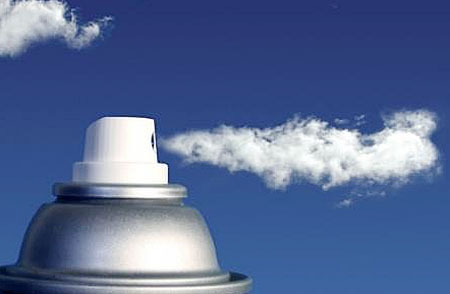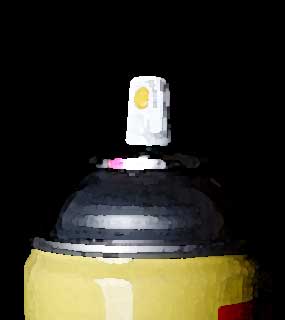Huffing
Addiction
People with a huffing addiction use fumes, gases and chemicals
to get their high. But in using these as drugs of choice, they
are gambling with their health and even their life. The ingredients
are inexpensive and easy to find, which only makes it harder to
cut down on the use of these chemicals.

Adults and children alike inhale fumes to get high. If huffing
abusers happen to be driving, they also cause accidents while
they're high. Many innocents have perished in crashes that were
caused by addicts driving after huffing.
Huffing various inhalants is done for a buzz, but when the chemicals
are abused, there can be prolonged problems. Some of the chemicals
include fingernail polish, wax removers, glue and spray paints.
If they are used repeatedly, they can cause:
- Brain damage
- Hearing loss
- Liver damage
- Spinal cord damage
- Heart failure
- Kidney damage
- Death
Correction and cleaning fluids include Trichloroethylene, which
can lead to almost any of the possible effects above. Gasoline
and glue contain hexane, which may cause blackouts and limb spasms,
and eventual death. Gasoline also contains benzene, which, when
abused, may lead to an increased risk of developing leukemia,
as well as injury to the bone marrow, toxicity of the reproductive
system and death.
Gas cylinders and whipped cream can dispensers include Nitrous
Oxide, which can lead to damage of the bone marrow and heart failure
leading to death. Freon, used as an aerosol propellant and a refrigerant
may cause respiratory obstruction, liver damage and Sudden Sniffing
Death Syndrome. This is brought on by the way Freon cools the
passages of the airways quickly.

Cigarette
lighters and their refills contain Butane gas, which can cause
an increase in heart rate, possible ending in death. Nitrite inhalation
enlarges the blood vessels as it increases heart rate, and initially
this may lead to dizziness and headaches. Adults are often the
inhalers of nitrites since they enhance sexual performance and
pleasure. The ill effects on one's heart make the temporary high
very dangerous.
Prolonged huffing with the use of chemicals and inhalants can
cause the heart to beat in an irregular manner, leading to heart
failure and imminent death. This is especially dangerous if the
user huffs aerosol chemicals, propane or butane. Whether you're
an adult or a child, the effects are the same.
If you breathe in higher inhalant concentrations, you may suffocate
to death. This occurs because the levels of toxic vapors replace
the oxygen in the lungs and the brain, causing the cessation of
breathing. All chemicals used in huffing are very toxic to the
organs of the body. Repeated huffing causes major damage in the
brain, nervous system, liver, lungs and heart.
Inhalants have shown themselves to be very addictive, even though
some people still feel that they are not. The compulsion is there
after someone has sniffed inhalants for a time. Detox treatment
by professionals is very important before organ damage occurs.
Withdrawal symptoms are severe, and you need to be monitored if
you are undergoing withdrawal. Therapy and treatment will help
to decrease the chance that you will relapse into addictive huffing.
Follow-up treatment will help to keep the rate of relapses lower.
|


